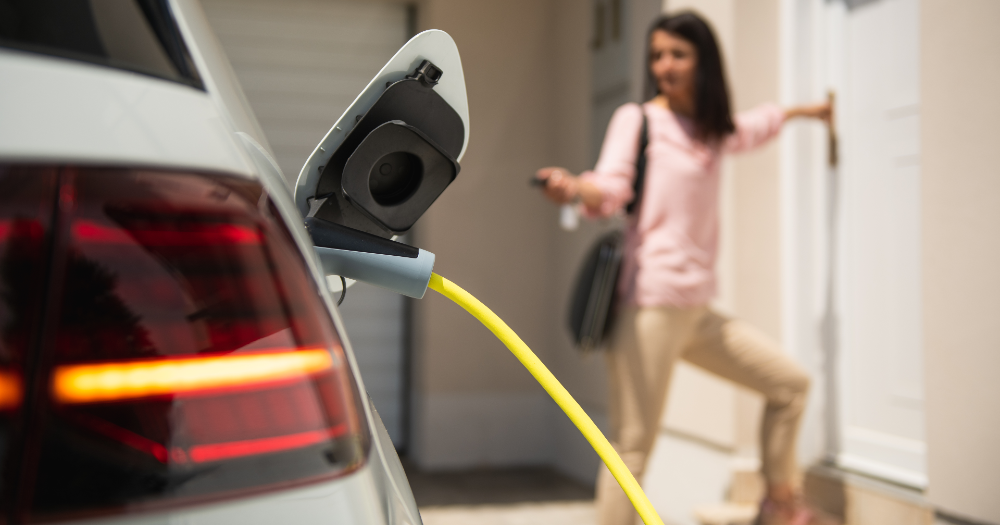If you own an electric vehicle, it’s important to know the basics of your electric car maintenance. From your electric car’s fluids to performance, to battery life, we’ll help you keep your electric car running as smoothly as the first day you bought it.
Keep Your Electric Car Running in Tip Top Shape
If you own an electric vehicle, it’s important that you know how to take care of it so that it stays running as it should. While some of an EVs maintenance is the same as a traditional gas-powered vehicle, some maintenance headaches like an oil change are thankfully no longer needed. Read on to learn about key maintenance tips every EV driver should know about so that you can keep your electric car in tip-top shape.
Understand Your EV’s Battery
The battery on your electric vehicle is going to be the biggest cause for concern when it comes to maintenance and upkeep. While the type of battery used in your electric vehicle depends on the make and model, EV batteries operate in the same way.
According to the National Renewable Energy Laboratory of the United States, the battery of an EV can last anywhere from 12 to 15 years assuming that the vehicle is used in an environment with a moderate climate. If your EV operates in extreme cold or heat consistently, then that lifespan dips down to about 8 to 12 years. When your battery life span is up, it’s time to bring your vehicle in for servicing.
There are ways however to extend the life of your battery. For starters, avoid long periods of time in environments with extreme temperatures. Too much cold or too much heat will deteriorate the performance of your battery over time. Charging your battery to full capacity, or consistently running your battery out of power can also degrade lifetime performance.
Moderate the Use of Fast Charge Stations
The way you charge your battery is also important for practicing proper maintenance of your EV. If you’re consistently using a fast charge port to power up your battery, you can diminish the lifespan of your battery. Of course, there’s no problem with using fast charging ports if you’re on a road trip, or every now and then, but don’t make it a habit. Not only that, but using your at-home charging port is much more efficient for both your battery’s lifespan and charging costs.
Bi-Annual Cooling System and Wiper Checks
As with your traditional gas-powered vehicle, you’ll still need to do routine maintenance on your EV’s fluids. Make it a habit to do a bi-annual flush or recharge of your vehicle’s cooling system. Other routine maintenance needs you’ll need to keep up with include refilling your wiper fluids, and swapping out your wiper blades for new ones when needed.
Maintain Your EV’s Brake Pads and Fluids
Arguably the second most important function of your vehicle is the braking system. As with your gas-powered vehicle, you’ll need to practice regular maintenance of your EV’s brake pads and brake fluid.
Every time you get your vehicle serviced, it’s a good idea to have your brake pads and brake fluids checked. Luckily, the brake pads on your electric car will likely last you longer than they would on a traditional gas-powered vehicle. Because of this, you’ll likely be changing the brake pads much less frequently. Depending on your EV model, you may need to check these components twice a year with a replacement once a year. Be sure to consult with your vehicle manufacturer to learn the specifics of how often to maintain your vehicle brake pads and fluids.
Keep Up With Tire Maintenance
While you can say goodbye to oil changes, you’ll still have to deal with traditional maintenance services like tire balancing, rotation, and replacement. Tire wear on an EV occurs at the same consistency that it would on a gas-powered vehicle. Because of how heavy the battery platform of an EV can be, you might even find yourself replacing the tires sooner than you would have on a gas-powered vehicle.
As a general rule of thumb, be sure to schedule a tire rotation and balance every 6,000 miles. Of course, if you’re faced with a flat, you’ll need to service that as quickly as possible. Never drive on a flat and be sure to have a certified technician service your eclectic vehicle’s tires.




